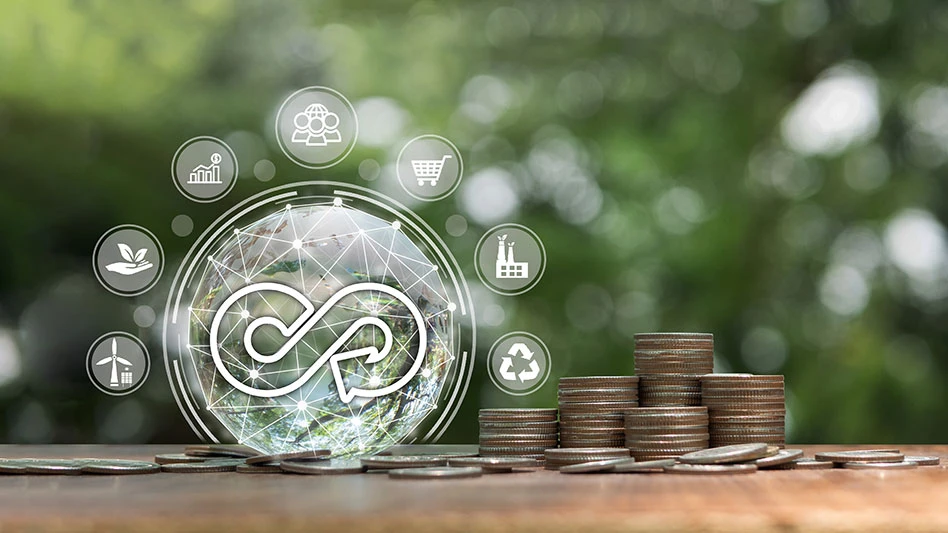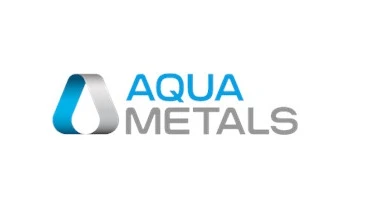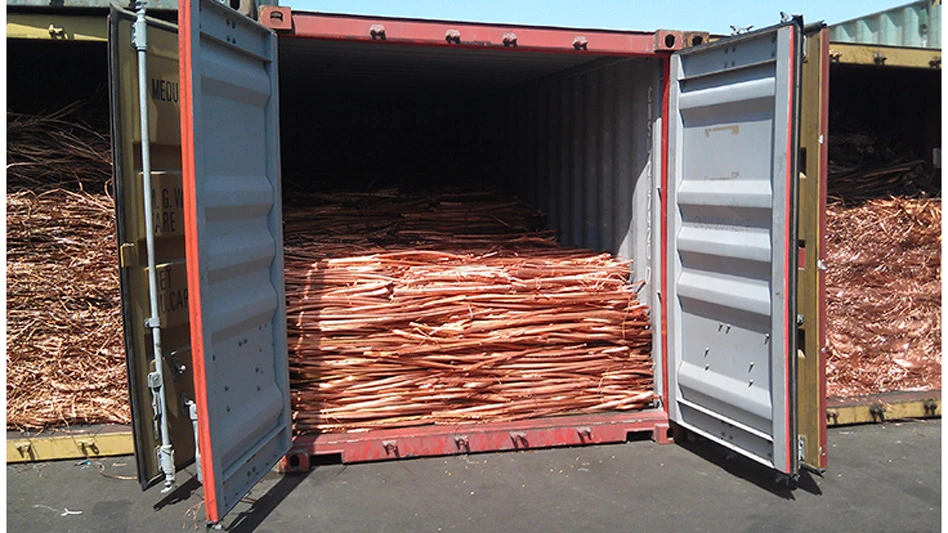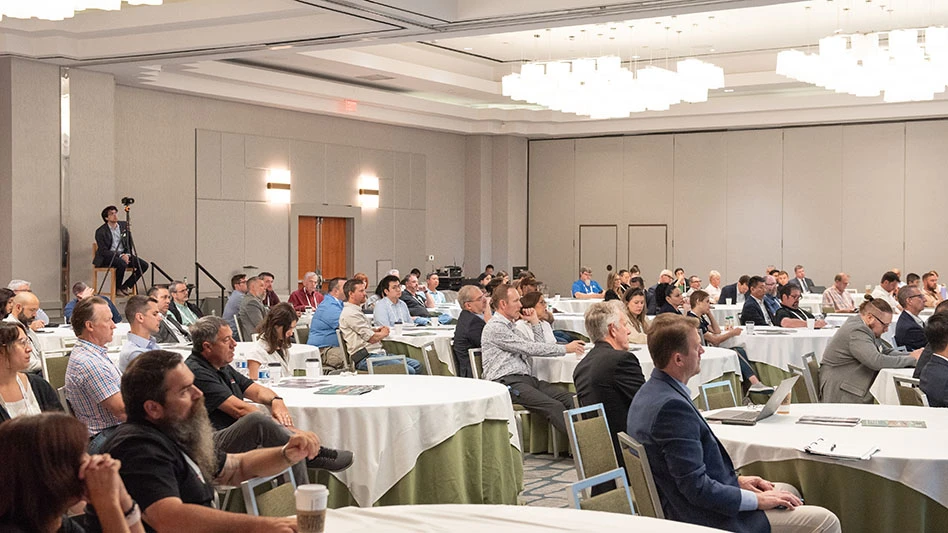 Editor’s Note: The following article is reprinted from Waste and Recycling Middle East, waste-recyclingme.ae, with permission.
Editor’s Note: The following article is reprinted from Waste and Recycling Middle East, waste-recyclingme.ae, with permission.
Aboura Metals, Dubai, United Arab Emirates, has been involved in the metals recyling business since the early 1950s. The company’s Managing Partner Nasser Aboura talks about the developments in the company and the Middle East recycling industry in the following interview.
Operations and Network
“The company that is now Aboura Metals was founded by our late father, Hussein Mohammad Aboura, in the early 1950s,” Aboura says. “Since then, the company has grown to be a well-recognized expert in the international scrap metals industry with a focus on recycling and trading in ferrous and nonferrous scrap metals. With our headquarters located in Dubai, we own subsidiary yards and offices in Jordan, Saudi Arabia and Egypt, with the total yard area spanning more than 100,000 square meters (in excess of 1 million square feet.)”
In the secondary scrap metals industry, the most essential aspect of the business is delivering high-quality scrap material as per international standards and specifications, he states.
“We maintain and deliver superior quality products and services through continuously investing in two vital assets: our machinery and equipment and our employees,” Aboura says. “We source the latest machinery and recycling equipment, such as shears, sorting lines for aluminum used beverage cans, specialized balers, [a] copper/aluminum shredder and [a] granulator, to mention a few. We are also committed to maintaining a motivated and diligent workforce that works effectively and efficiently in order to ensure seamless operations,” Aboura adds.
In addition to being an ISO 9001:2008 certified company, Aboura Metals is an active gold member of the Bureau of International Recycling (BIR), the China Nonferrous Metals Industry Association Recycling Metal Branch (CMRA), the Institute of Scrap Recycling Industries Inc. (ISRI) and the Metal Recycling Association of India (MRAI). The company is a founding member of Bureau of Middle East Recycling.
Secondary Metals Outlook
Aboura further explains that despite some challenges in the world economy in the past few years, “In 2012 we started seeing promising improvements in the metals markets. Emerging and developing economies have shown an increase in GDP with plans of increasing manufacturing and improving infrastructure. Recycled metals demand is expected to continue to rise along with the growth of emerging economies.”
Recycling aluminium and copper plays a vital role in keeping the supply of these finite resources alive, reducing energy consumption and waste disposal, contributing to preserving the environment. Not only does recycling save the environment but it also helps in meeting the growing demand for these metals.
Aluminium, the most widely used nonferrous metal, is suitable for applications in the transportation and construction industries, the packaging industry and even the electrical industry.
 Copper possesses superior qualities that make it popular for power, lighting and communication transmissions. In addition to this, demand for copper also stems from its application in construction, electronics and industrial machinery and equipments.
Copper possesses superior qualities that make it popular for power, lighting and communication transmissions. In addition to this, demand for copper also stems from its application in construction, electronics and industrial machinery and equipments.
“According to BIR statistics, almost 40 percent of copper demand is met by recycling,” Aboura says. “One can understand where the demand for aluminium and copper stems from and, due to their ability to be recycled and reused, demand for these secondary metals is on the rise,” he adds.
“During 2012 markets were good. At times we faced some challenges, but I think from years of experience I can say that it is within the norm to experience steep increases or decreases in demand, consumption and prices,” Aboura says. “In general, the situation in the Middle East is full of uncertainty due to political conflicts that have arisen across Egypt, Lebanon, Syria and Jordan, and this has resulted in adopting a wait-and-see approach by many investors in the region. However, business in other countries across the Middle East was on the rise, especially with the growth witnessed across the Gulf countries.”
With the eurozone slowdown, uncertainty and instability persist in the markets as traders and buyers remain skeptical and cautious, Aboura explains, adding that this trend is likely to continue in the short- term until confidence is restored. “Nonetheless, the realization of economic power of emerging markets is becoming more popular. Growth strategies based in these developing countries by their local governments and many multinational companies looking for investments will have a positive impact on our businesses,” he says. “Thus, regardless of temporary slowdowns in the global markets, I believe there is a promising future for the scrap metals industry.”
Materials Procurement
As for procurement, he says, “We have built and cultivated deep relationships over the decades with our reputed suppliers across the Middle East and Africa region. Of course, our main source of acquiring supply is our own yards that are located in Jordan and Saudi Arabia.” These yards are run by Ali Aboura, Ghazi Aboura and Hasan Aboura, the company’s managing partners.
“Just as we value trust and honesty when working with our customers, we follow the same values when working with our suppliers,” Aboura continues. “It is essential to maintain successful relationships in order to move forward and develop our cooperation even further for the future.”
Aboura Metals’ factory operations are regional, but its client base is global. The company ships internationally to western and eastern countries, and the demand is highest in India and other Far East countries, Aboura says, as well as in European countries and the Americas.
Challenges and Key Concerns
Aboura says aluminium, just like other basic metals, is a very cyclical product. When an economy is booming, demand for aluminium increases and vice versa.
“Despite steady increase in consumption of aluminium metal, we are still being exposed to risk and imbalances with the low LME (London Metal Exchange) prices,” he says. “This is due to the major slowdowns in China and Europe.
Aboura continues, “The Middle East’s recent growth to become a major aluminium producer provides us with opportunities but also with some challenges. In 2011, the region represented 7.7 percent of global aluminum production and is projected to reach 8 percent by 2015.
“Major challenges are still faced by the industry, such as suppressed aluminium LME prices and increases in the prices of natural gas,” he adds.
Business Strategy
Aboura says, “Our focus has been on achieving consolidation. This will allow us to further develop our operations, reduce cost and improve efficiency. We see future growth into new international markets which we have not tapped into yet.”
He continues, “While our external growth strategy remains to expand into new markets, we are growing internally through recruiting and developing our third generation and providing them with opportunities to take on leading managerial roles across company operations, allowing our history, heritage and values to be preserved across everything we do.”

Explore the September 2013 Issue
Check out more from this issue and find your next story to read.
Latest from Recycling Today
- USTR announces phased measures designed to address China’s shipbuilding dominance
- APR, RecyClass release partnership progress report
- Clearpoint Recycling, Enviroo sign PET supply contract
- Invista expanding ISCC Plus certification program
- Redwood partnership targets recycling of medium-format batteries
- Enfinite forms Hazardous & Specialty Waste Management Council
- Combined DRS, EPR legislation introduced in Rhode Island
- Eureka Recycling starts up newly upgraded MRF





